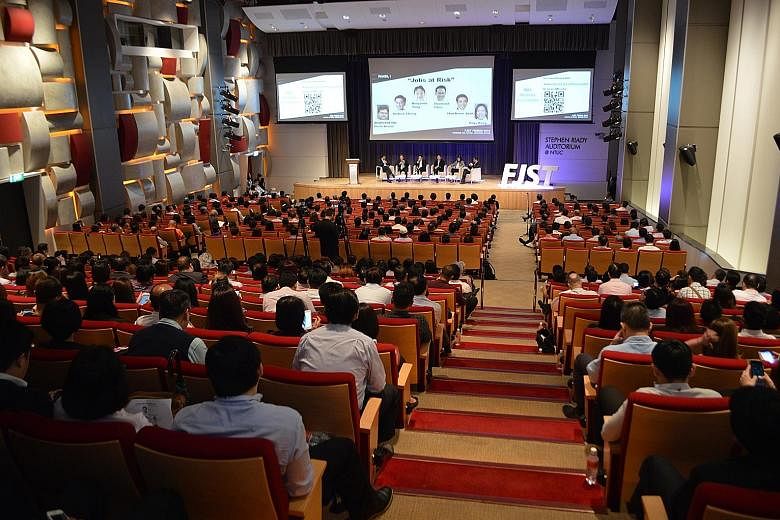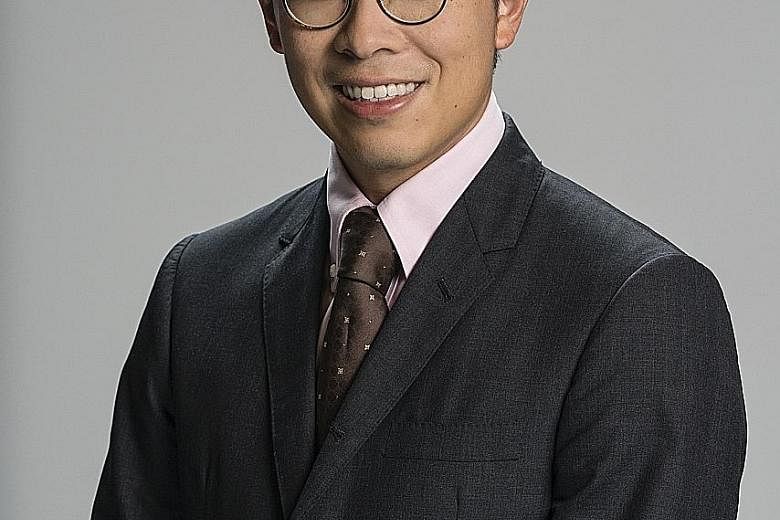Even as some jobs are disappearing, others are being created as companies overseas look to Singapore to build on the expertise of existing industries and for hub and digital services, said Economic Development Board (EDB) managing director Chng Kai Fong yesterday.
The newly minted chief of the agency in charge of bringing investments into Singapore said that companies in some high-technology areas are being drawn here, as they want to tap businesses here to create solutions in up-and-coming industries.
Designers and manufacturers of self-driving cars, for instance, will find a network already built up in Singapore of wafer fabrication plans, software developers and the artificial intelligence (AI) research community, he told a forum on future jobs, skills and training.
Agriculture technology companies can also leverage on Singapore's capabilities in electronics and solar cells, as well as in software and AI, which help in optimising plant yields.
Recounting a story of how he recently discovered that a salad he bought was made with vegetables grown by electronics manufacturer Panasonic, which has incorporated a farm in a factory here to test agri-tech, he said: "With technology, things that we never dreamed were possible in the past now are possible, and we can chase those industries."
Mr Chng, who joined EDB last October, said higher-skilled jobs are also being created as existing companies are transformed. For example, in aerospace, an engine-servicing facility here has been upgraded to service new types of engines as older types are phased out.
"The good news (for workers) is we have an existing base of industries here, and you have an existing base of skills to build on, and those are the jobs we are bringing in," he said.
Many companies are also setting up digital hubs here as they try to digitalise their processes, he told some 550 people including union leaders, employers and educators at the event organised by the National Trades Union Congress (NTUC).
Panellists at the forum, held at the NTUC Centre, discussed the fast-changing jobs and skills arenas.
They agreed that while the hard skills needed for new jobs are still being defined, workers should hone their soft skills like problem-solving, adaptability and having an open mind.
Infineon Technologies Asia Pacific board adviser Andrew Chong, who spoke at one of the panel discussions, said future jobs will require workers who can manage uncertainties based on principles, rather than simply following rules.
NTUC assistant secretary-general Patrick Tay said after the event that the Future Jobs, Skills and Training department he heads has been focused on analysing the upcoming changes and needs in growth sectors, such as healthcare and financial services, so that this information can be used to help workers prepare.
It plans to also focus on the accountancy industry this year, he said, adding that while there is growth potential in the sector, there is also "heavy disruption as manual work is moving towards automation and AI".



